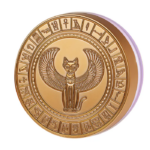A Comprehensive Guide: Choosing Between A-Levels and IB Curriculum in Hong Kong
As parents in Hong Kong, navigating the educational landscape for your child can be a challenging task, especially when it comes to deciding between A-Levels and the International Baccalaureate (IB) curriculum. Both options have their unique strengths and cater to different learning styles and future aspirations. Understanding the differences between these two pathways can help you make an informed decision that aligns with your child’s needs.
Understanding A-Levels
 The A-Level system, predominantly offered by British schools, is a well-established qualification recognized globally. Students typically study three to four subjects over two years, culminating in examinations. This pathway is ideal for students who prefer a more specialized approach to education. By focusing on a limited number of subjects, students can delve deeply into their areas of interest, which can be advantageous for those who have clear career goals. One of the key benefits of A-Levels is the flexibility it offers. Students can choose subjects that align with their intended university courses, making it easier to demonstrate expertise in relevant areas. For instance, a student aiming to pursue medicine can focus on Biology, Chemistry, and Mathematics. Additionally, A-Levels are widely recognized by universities in the UK and around the world, making them a strong option for students aspiring to study abroad. However, the A-Level system may lead to a more stressful environment, as students often face intense pressure to perform well in a limited number of subjects. This focus can sometimes limit exposure to a broader range of topics, which may not be ideal for students who are still exploring their interests.
The A-Level system, predominantly offered by British schools, is a well-established qualification recognized globally. Students typically study three to four subjects over two years, culminating in examinations. This pathway is ideal for students who prefer a more specialized approach to education. By focusing on a limited number of subjects, students can delve deeply into their areas of interest, which can be advantageous for those who have clear career goals. One of the key benefits of A-Levels is the flexibility it offers. Students can choose subjects that align with their intended university courses, making it easier to demonstrate expertise in relevant areas. For instance, a student aiming to pursue medicine can focus on Biology, Chemistry, and Mathematics. Additionally, A-Levels are widely recognized by universities in the UK and around the world, making them a strong option for students aspiring to study abroad. However, the A-Level system may lead to a more stressful environment, as students often face intense pressure to perform well in a limited number of subjects. This focus can sometimes limit exposure to a broader range of topics, which may not be ideal for students who are still exploring their interests.
Exploring the IB Curriculum
 The International Baccalaureate (IB) curriculum is an increasingly popular option in Hong Kong, known for its holistic approach to education. The IB Diploma Programme (DP) spans two years and requires students to study six subjects, along with three core components: Theory of Knowledge (TOK), Extended Essay (EE), and Creativity, Activity, Service (CAS).
The International Baccalaureate (IB) curriculum is an increasingly popular option in Hong Kong, known for its holistic approach to education. The IB Diploma Programme (DP) spans two years and requires students to study six subjects, along with three core components: Theory of Knowledge (TOK), Extended Essay (EE), and Creativity, Activity, Service (CAS).
The IB curriculum is designed to encourage critical thinking, intercultural understanding, and a well-rounded education. Its emphasis on research and independent learning through the Extended Essay prepares students for the demands of university-level study. Moreover, the CAS component encourages students to engage in extracurricular activities, fostering personal development and social responsibility. A significant advantage of the IB is its global recognition. Universities, particularly in Europe and North America, value the IB for its rigorous standards and emphasis on a broad educational experience. This can be particularly beneficial for students who are considering a diverse range of university programs. However, the IB can be demanding due to its comprehensive nature. Students are required to manage multiple subjects and projects simultaneously, which may not suit everyone. It’s essential for students to possess strong time-management skills and a genuine interest in a wide variety of topics to thrive in this environment.
Making the Right Choice
 When deciding between A-Levels and the IB curriculum, consider your child’s learning style, interests, and future aspirations. If your child has a clear vision of their career path and prefers a focused study approach, A-Levels may be the better fit. Conversely, if they are open to exploring various subjects and enjoy a more holistic educational experience, the IB could be more suitable. Additionally, consider your child’s ability to handle academic pressure. The A-Level system’s focus on examination performance may be intense, while the IB’s broader approach can be more balanced but requires consistent effort across multiple subjects. Ultimately, both pathways offer valuable opportunities for academic and personal growth. Engaging in discussions with your child about their preferences and aspirations, along with seeking advice from educators or career counselors, can guide you in making the best decision for their future. Whether your child chooses A-Levels or the IB, the focus should be on nurturing their passion for learning and preparing them for the exciting challenges ahead.
When deciding between A-Levels and the IB curriculum, consider your child’s learning style, interests, and future aspirations. If your child has a clear vision of their career path and prefers a focused study approach, A-Levels may be the better fit. Conversely, if they are open to exploring various subjects and enjoy a more holistic educational experience, the IB could be more suitable. Additionally, consider your child’s ability to handle academic pressure. The A-Level system’s focus on examination performance may be intense, while the IB’s broader approach can be more balanced but requires consistent effort across multiple subjects. Ultimately, both pathways offer valuable opportunities for academic and personal growth. Engaging in discussions with your child about their preferences and aspirations, along with seeking advice from educators or career counselors, can guide you in making the best decision for their future. Whether your child chooses A-Levels or the IB, the focus should be on nurturing their passion for learning and preparing them for the exciting challenges ahead.



